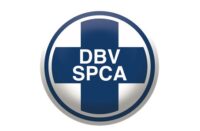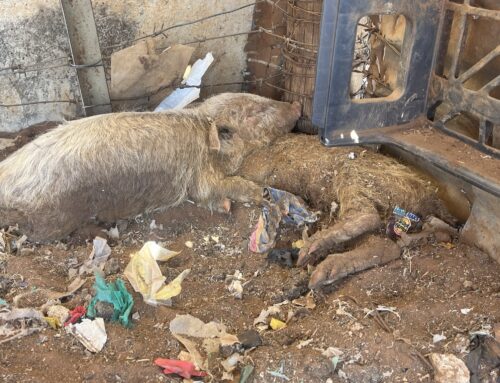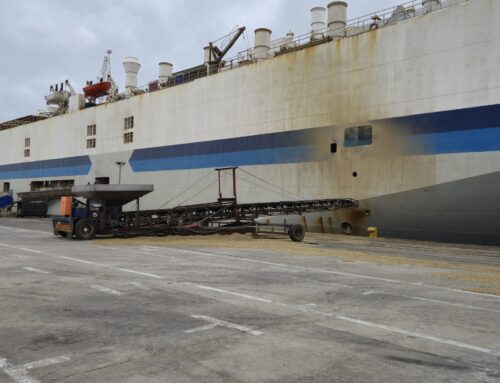October is National Transport Month!
Every day, thousands of farm animals are transported across South Africa, to feedlots, abattoirs, and saleyards, and across borders and overseas. Sadly, some of the time they are transported in a manner that not only puts their lives at risk, but also the lives of other road users.

The Legislation
This October, we recognise Transport Month by emphasising the importance of the humane transportation of animals by road.
Did you know that the movement or transportation of farm animals by road in South Africa is regulated by law? The National Road Traffic Act 93 of 1996 is enforced by local, provincial, and national Traffic Authorities.
The National Council of SPCAs (NSPCA) also follows legislation to ensure that all animals are transported humanely by road and that their welfare is of paramount importance during transportation. The South African National Standards (SANS) 1488:2014 Humane Transportation of Livestock by Road sets out the minimum standards required pre-, during, and post-transportation. It is read together with the Animals Protection Act 71 of 1962, which means that if anyone contravenes any sections therein, they are liable for prosecution.
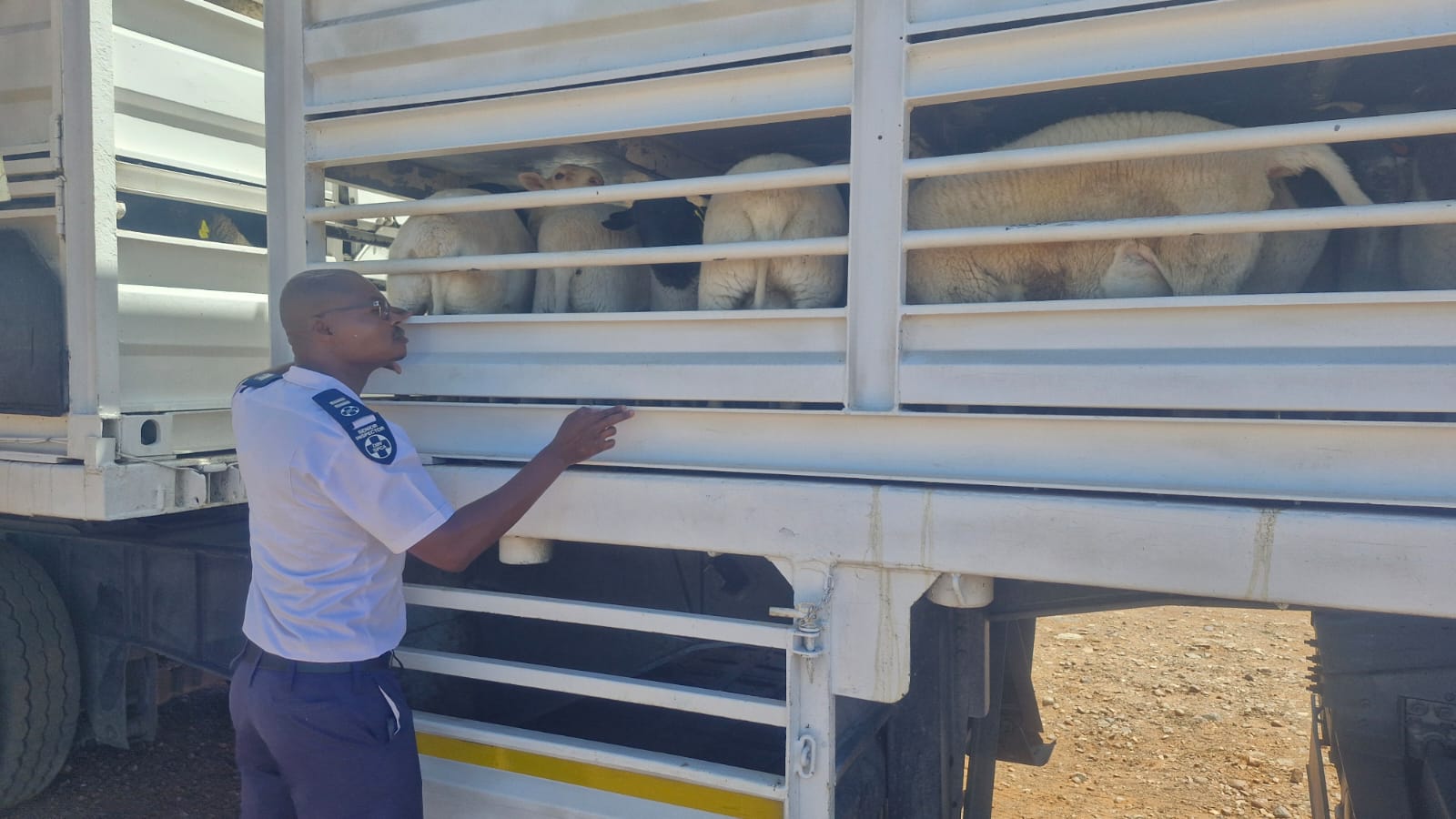
There are other pieces of relevant legislation that govern the transportation of live farm animals by road, including the Stock Theft Act 57 of 1959, the Animal Identification Act 6 of 2002 and its Regulations, the Animal Diseases Act 35 of 1984, and the Meat Safety Act 40 of 2000.
In order to improve the lives of animals during transportation, the NSPCA is currently working on the revision of the South African National Standard 1488:2014 through the South African Bureau of Standards (SABS).
The Issues

There are various animal welfare issues that the NSPCA has encountered when inspecting the condition of farm animals transported by road.
- Road accidents involving trucks transporting animals, which result in the deaths of 1,000s of animals, often due to negligence by truck owners and drivers.
- The inhumane handling of animals before loading.
- “Incompatible” animals are transported together, such as mothers and calves with other adult animals, or unsuitable species are transported together.
- Disregard for the social grouping or structure of animals, such as solitary and social animals transported together.
- Use of vehicles not suited for the species or needs of specific animals.
- Exposure of animals to unfamiliar sounds, smells and new environments, which can be traumatic and distressing to them.
- Exposure to uncomfortable temperatures, such as vehicles parked in the sun or a wind chill factor that may result in heat or cold stress.
- No shading provided for animals during transport.
- Inadequate ventilation in vehicles.
- Overcrowding.
- A lack of essential non-slip flooring.
- Starving and dehydration of animals left without food or water for hours at a time.
- The health and condition of the animals being transported is not considered.
- A lack in adequate driver training and route plans to ensure the shortest and safest route.
- A lack of emergency plans in case of breakdowns or accidents. This means that sick or injured animals are often left to suffer until the end of the journey before veterinary care can be provided.
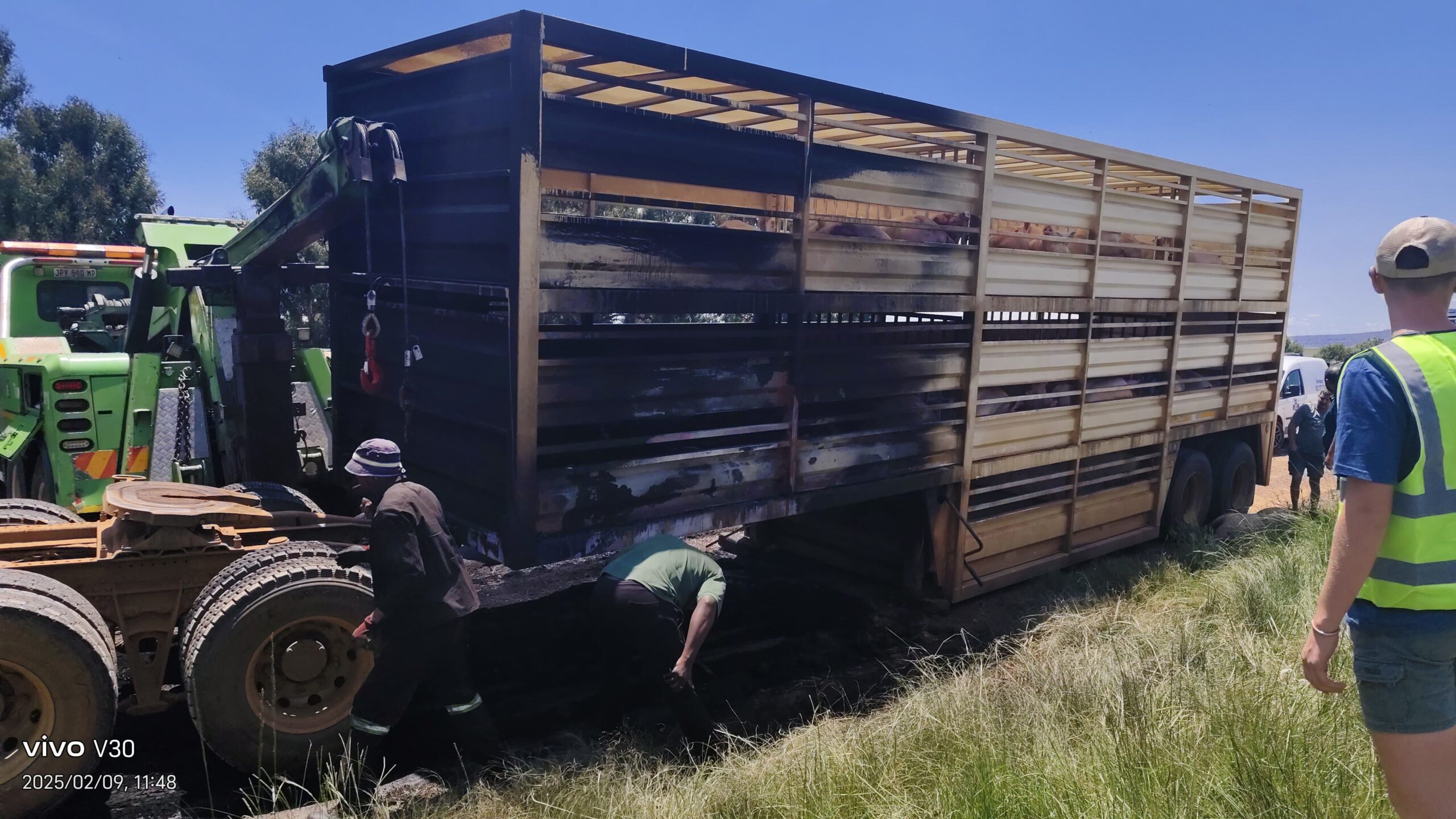
The Progress
After months of calling on border authorities to give live animals priority at the country’s ports of entry and exit, the Border Management Authority confirmed in 2024 that live animals will be given preference at borders. This means that they are to be processed as quickly as possible, especially in extreme weather.
The NSPCA is currently collaborating with a working group of relevant stakeholders, including the Ministry of Transport, and national and provincial traffic authorities, on drafting Standard Operating Procedures to achieve this.
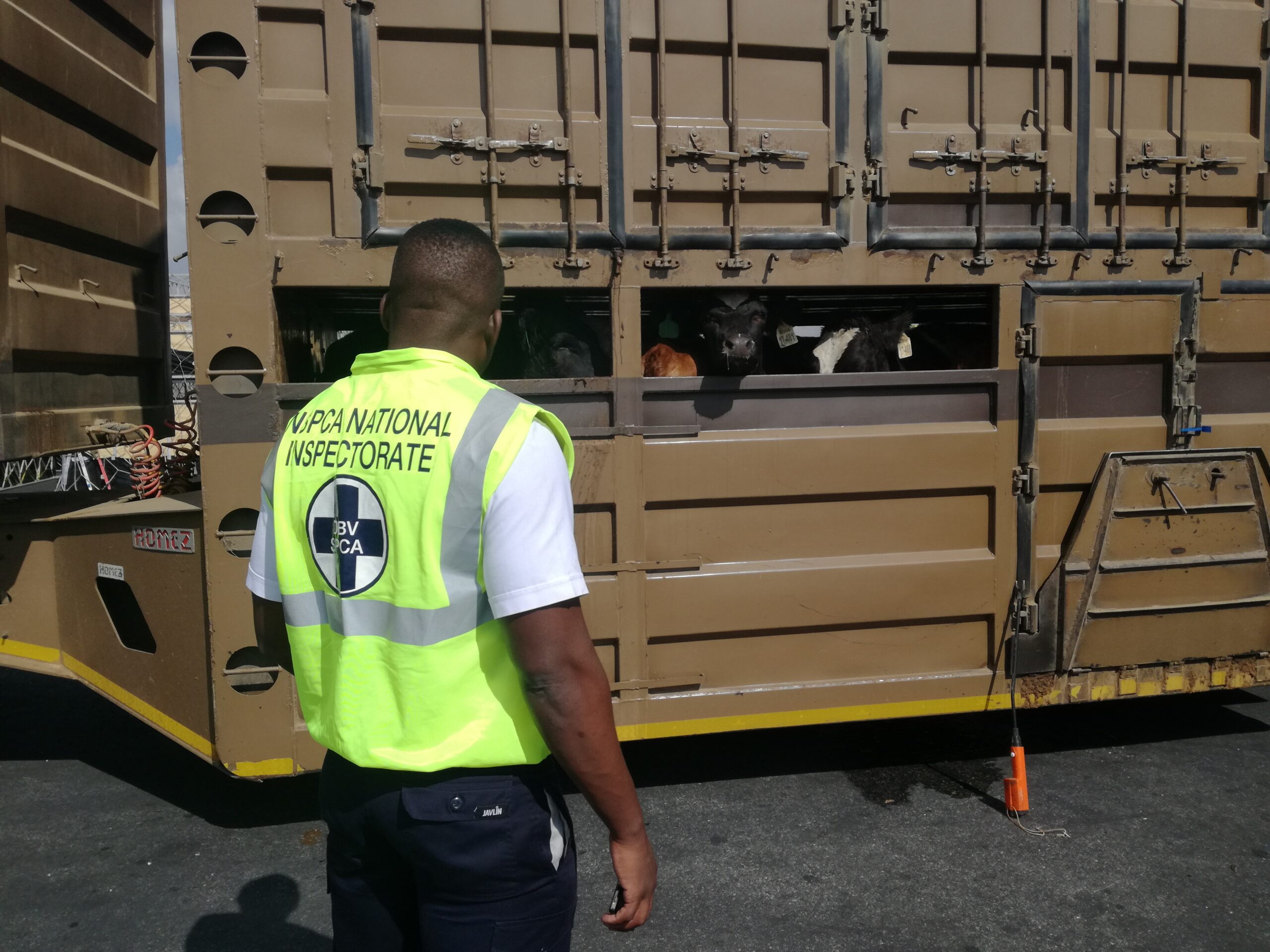
Live Export By Sea
The NSPCA remains steadfast in our statement of policy relating to live export of animals by sea and maintain that no country has the capacity or capability to ensure or guarantee animal welfare on livestock vessels. Our short-term objective is to ban the live export of animals by sea from South Africa across the equator.
In March 2023, the then Department of Agriculture, Land Reform and Rural Development (DALRRD) published the GUIDELINES FOR THE EXPORTATION OF LIVE ANIMALS BY SEA, Version 01.
On 11 July 2025, Government Notice No. 6400 was published, informing the general public that the Minister of Agriculture, in terms of section 10 of the Animals Protection Act 71 of 1962, was to make the Regulations (REGULATIONS FOR THE EXPORTATION OF LIVE ANIMALS BY SEA) as set out in the Schedule. The proposed Regulations seek to replace the Guidelines.
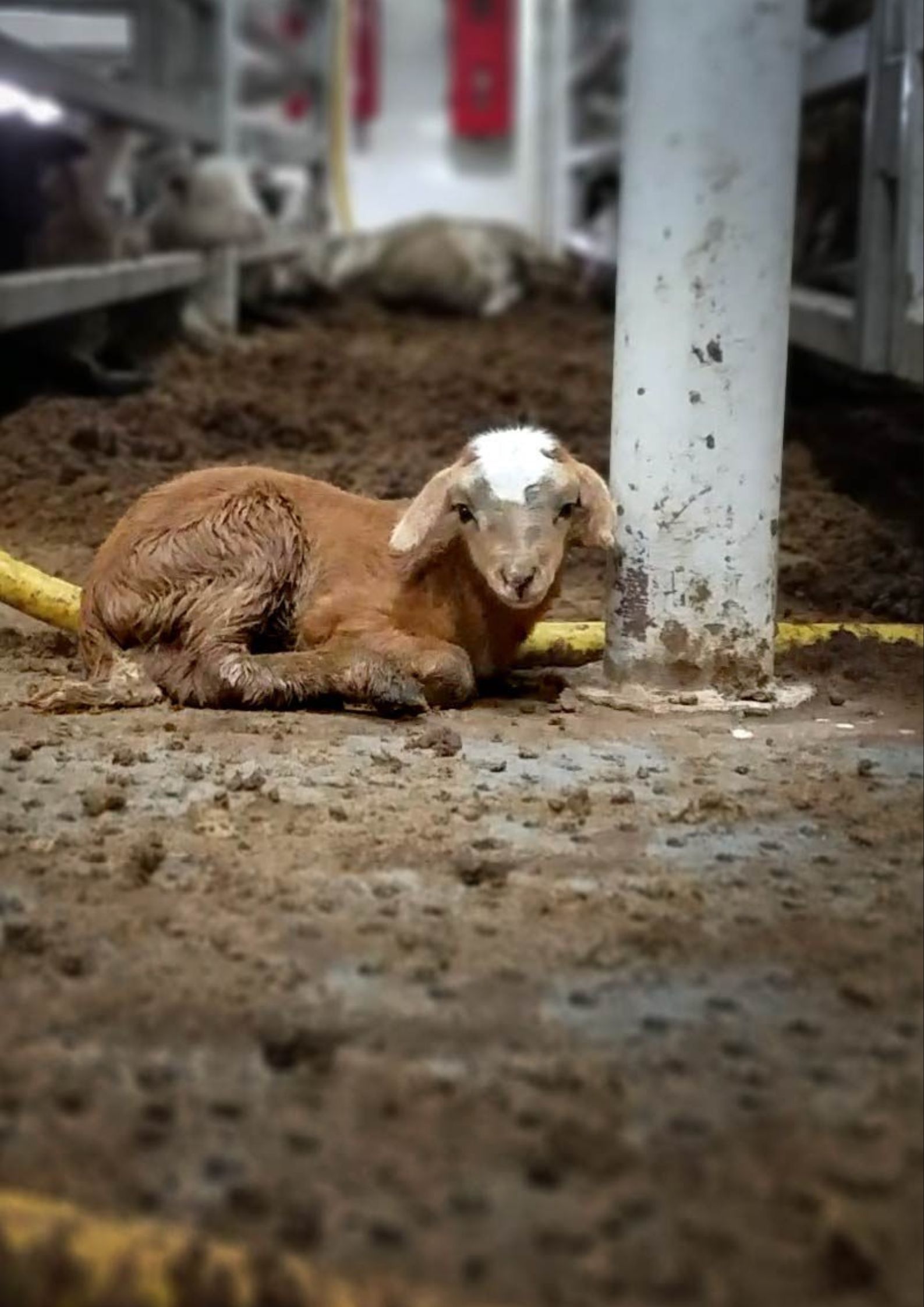
Interested persons were invited to send written comments on the proposed Regulations within 45 days from the date of publication of this Notice, to the Minister.
As the authoritative voice for animals in the country and given the long-standing opposition to the live export of animals by sea, the National Council of SPCAs (NSPCA) submitted a formal comprehensive response to the National Department of Agriculture, reiterating the organisation’s position statement on live export, as well as underscoring the long list of animal welfare inadequacies reported.
We also pointed out that the proposed Regulations lack enforcement and compliance teeth, due to the absence of criminal sanction and administrative fine sanction for failure to meet the minimum peremptory requirements.
Their safety matters to us, and while many may overlook the importance of regulating the manner in which these animals are transported, we have a legal and moral obligation not to look away.
Helps Us Help Them
Remember that animals are transported every single day of the year.
If you notice any inhumane or unsuitable methods or modes of transportation of any animal, please report it immediately to the NSPCA (011 907 3590), your local SPCA (https://nspca.co.za/spcas-in-sa/) or local, provincial or national traffic authorities or police.
If you are as passionate about animals and their well-being as we are, consider supporting our causes by donating.
Latest News Posts
Will You Be the One Who Takes Action?
Most people will scroll past this. But will you be the one who stands up for animals?
Animal welfare isn’t always in the spotlight, but it changes lives – for every neglected, abused, or suffering animal we help. Our teams work tirelessly, often behind the scenes, ensuring animals across South Africa are protected.
This work is relentless. The challenges are immense. But with more hands, hearts, and resources, we can do even more.
The equation is simple: the more supporters we have, the greater our reach, the stronger our impact.
Be part of the change. Become an NSPCA Project Partner today. From just R50 per month, you can help ensure that no animal suffers in silence.


